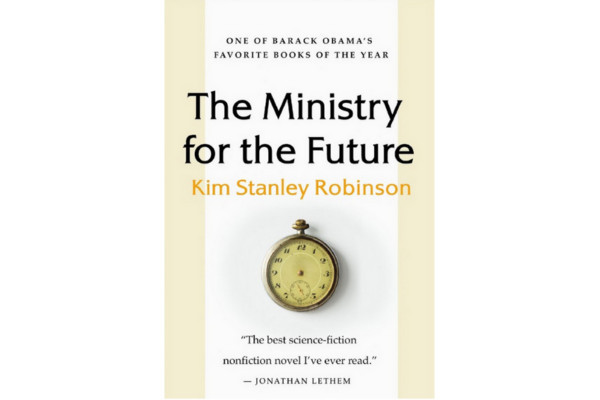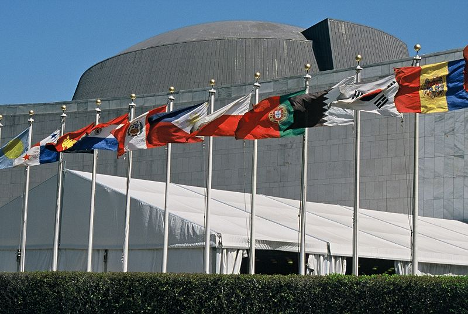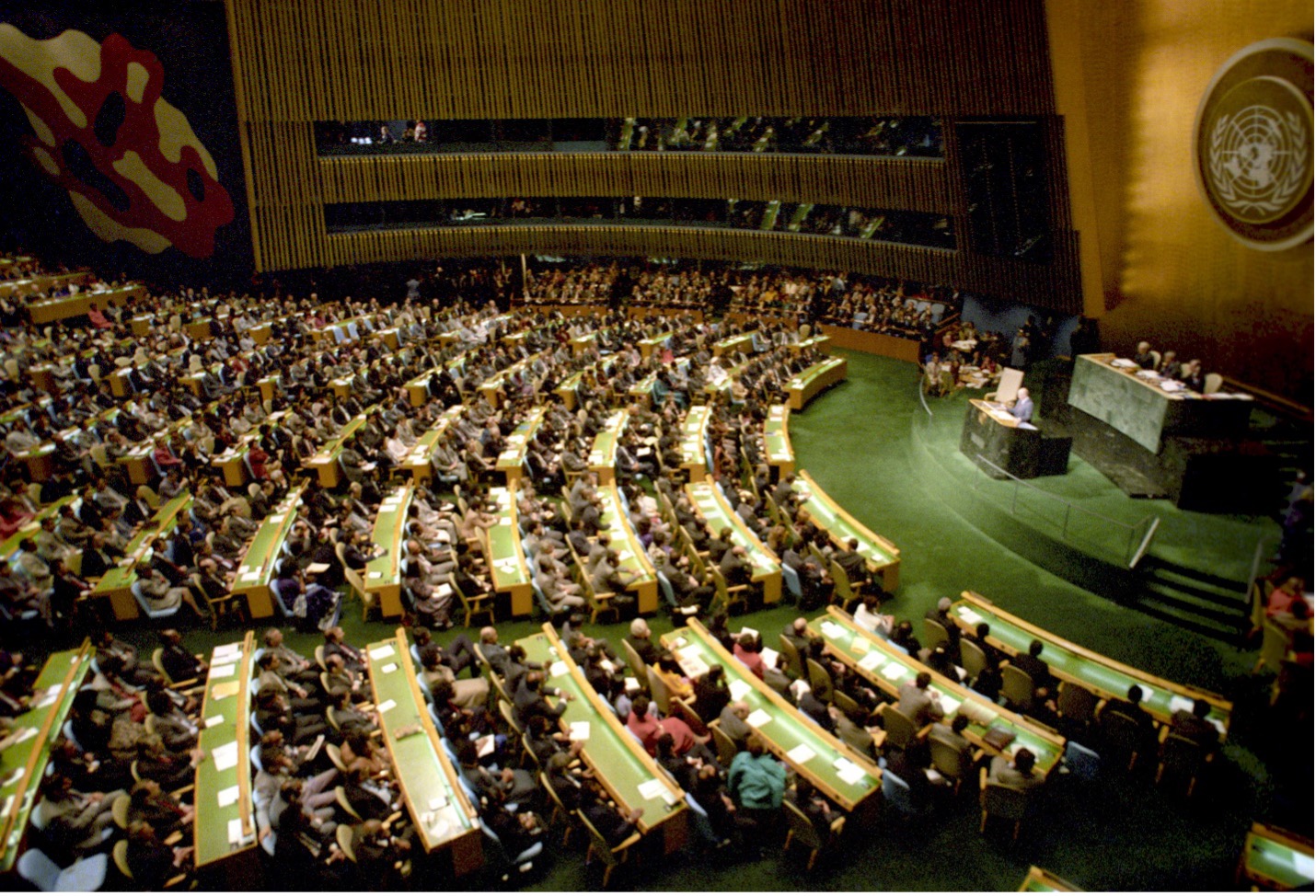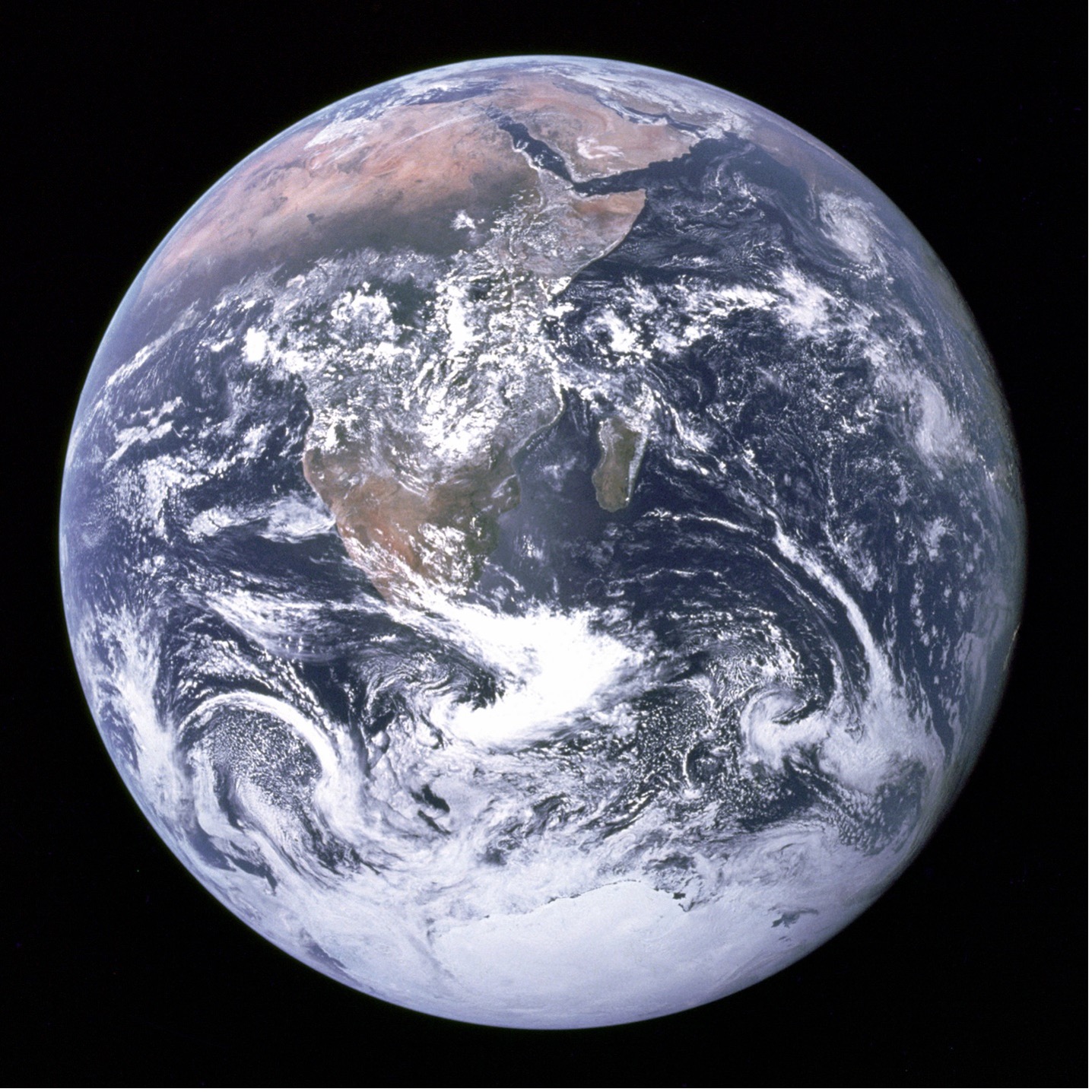
In the year 2025, India suffers a record-shattering heat wave.
Temperatures soar past 132°F (50°C) in some regions. Over 20 million people die in the heat. As the power grids collapse under the strain, thousands of people desperately soak themselves in lakes and streams, where they are cooked alive.
For the first time, the world unanimously agrees that climate change is real.
This catastrophic event marks the beginning of Kim Stanley Robinson’s novel “The Ministry for the Future,” which I believe is one of the most important books of our time.
And it involves crypto.

The Quick Pitch
The story centers around the Ministry for the Future, a UN organization created to coordinate international efforts to combat climate change. (“Ministry” as in “department,” and “Future” as in “protecting the rights of future generations.”)
At the heart of the novel is Mary Murphy, the head of the Ministry, who navigates a complex and often dangerous landscape of climate politics. Through her eyes, we see that making meaningful change is a risky, high-stakes operation: her life is repeatedly threatened by shadowy powers, while her department actually has very little funding or leverage.
But the book masterfully weaves together the stories of various characters (I was reminded of Max Brooks’s terrific World War Z), who each play a vital role in the fight against climate change.
- In response to India’s devastating heatwave, a team of pilots carries out a controversial solar geoengineering project. For months, they spray aerosols into the stratosphere, reflecting the sun’s rays back into space to cool the planet temporarily. No one is sure if it will work; the world is angry.
- A group of scientists takes on a bold and risky mission to drill holes beneath the Antarctic ice caps. Their goal is to pump cold water to the base of the ice, stabilizing the ice sheet and preventing it from sliding into the ocean. No one is sure if it will work; people die.
- Some people form eco-terrorist groups, believing that extreme actions are necessary to force climate change. They carry out covert operations, sabotaging the biggest polluters and even taking out CEOs of major oil companies, literally murdering them while they sleep.
- The novel also follows refugees who are displaced by extreme weather events and rising sea levels. These stories bring a personal and emotional dimension to the story, showing us the human side of climate change.
- Finally, a team of financial experts within the Ministry work on economic incentives for tackling climate change. They ultimately engineer a new global cryptocurrency called the “Carbon Coin,” which tokenizes carbon credits as an incentive for carbon reduction.
It would be a stretch to say the book is about crypto: the carbon coin is just one solution among many. But the resistance that Mary Murphy faces when trying to sell the central banks on the carbon coin will sound familiar to anyone who follows the agonizingly slow pace of crypto regulation.
In that sense, the book is all about crypto.

One-World Global Money
As I explained in my TED Talk, I see crypto eventually leading us to a one-world global money.
This will have tremendous benefits: it will be easier and faster to send money anywhere, streamlining international trade. It will eliminate the need for currency exchange. It will lower transaction fees. And it will not tie the world to the political stability (or instability) of the U.S. dollar.
We live in a global economy. We should have a global currency.
(To be clear, nations can still have their own currencies, but these will roll up into a global currency. There can still be a U.S. dollar, it’s simply redeemable for this new global currency.)
Like climate change, upgrading the global financial system can seem like a task that’s too big to tackle. When you’re up against the world’s most powerful banks and financial institutions, how can we hope to change the system? They own the money!

In this way, “The Ministry for the Future” provides a blueprint for how it can happen:
Global cooperation: like tackling climate change, rewiring the world’s money will require international partnership and coordination. There’s no doubt that crypto is already a global movement, but it may require a global financial catastrophe (like the heatwave in the novel) to kickstart coordinated action.
Technological innovation: Blockchain and crypto technologies will offer new solutions to longstanding issues like financial inclusion (which affects entire countries, not just individuals) and the loss of trust in central banks (for printing money every time there’s a crisis). We’ll need even more of this innovation.
Economic incentives: In the novel, new carbon coins are minted when carbon reduction milestones are achieved, creating a financial reward for companies and nations. The tokens are backed by a consortium of central banks, showing how crypto-based global money could integrate with existing systems.
Resistance from The Man: Both climate action and crypto face intense opposition from the Powers That Be. In my view, much of the resistance we are seeing around crypto legislation in Congress is due to intense lobbying from established players. But resistance can be overcome!
Incredible potential: A one-world global money has the ability to reshape the world, much as climate solutions in the novel reshape various aspects of society. As we begin spending this new unit of money, we will begin to understand – really understand – that we live in a global economy.
And that will change the world.

An Optimistic Outlook
Believe it or not, “The Ministry for the Future” is profoundly optimistic.
It probably doesn’t sound that way, but the ultimate message is that working together, we can solve problems. Even the most difficult problems!
Humans are good at solving problems. That’s kind of our thing.
Fixing our global financial problems – by evolving from a U.S.-dominated currency to a worldwide cryptocurrency – will not happen overnight. It will require a coordinated effort of smart and diverse solutions.
It will be difficult and messy. A lot of solutions won’t work. And the entrenched financial players will be fighting us every step of the way.
The good news is, every time we invest a bit of our wealth into crypto – like with our monthly investing plan – then we can not only outperform traditional investors, we can start paving the way for this future of money. We are literally investing in this new system.
Bit by bit, month by month, we’re getting there. Because we live in a global financial system, and slowly we are building the infrastructure for a global currency.
And that’s a real ministry for the future.
Image credits: Hachette Book Group, OpenAI, Wikimedia Commons.





